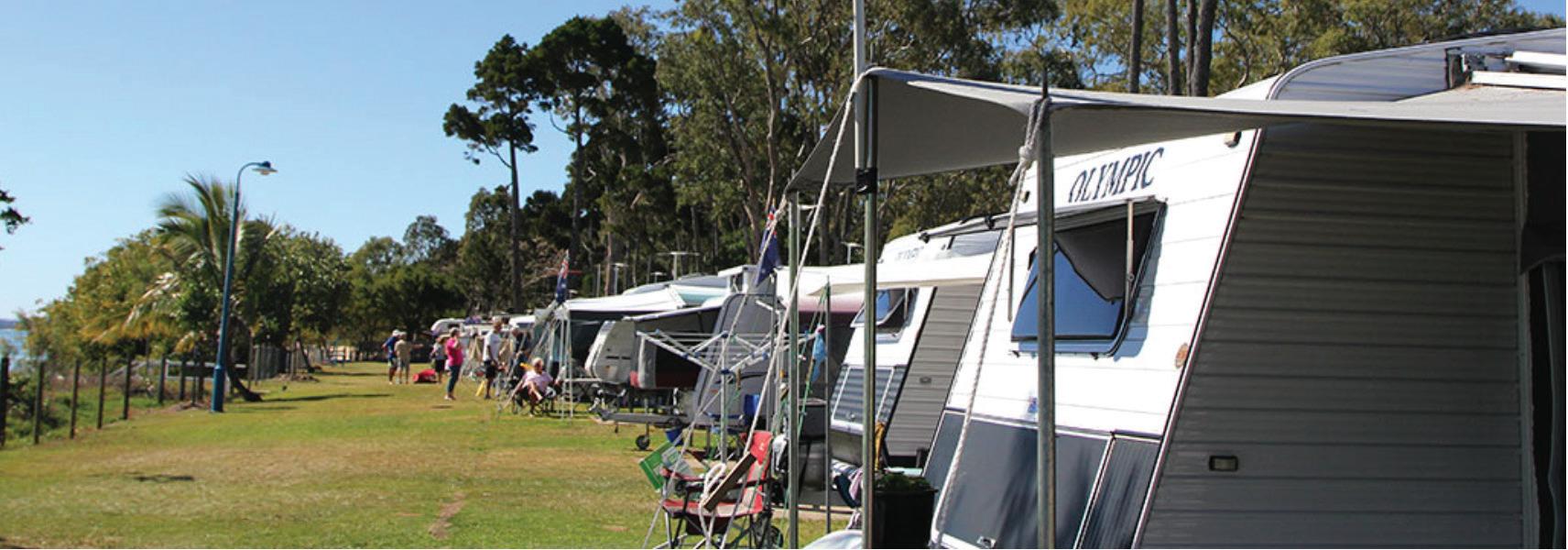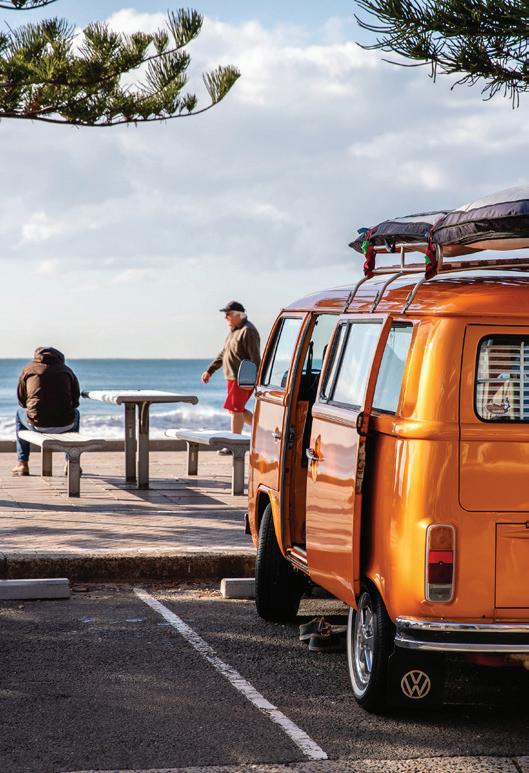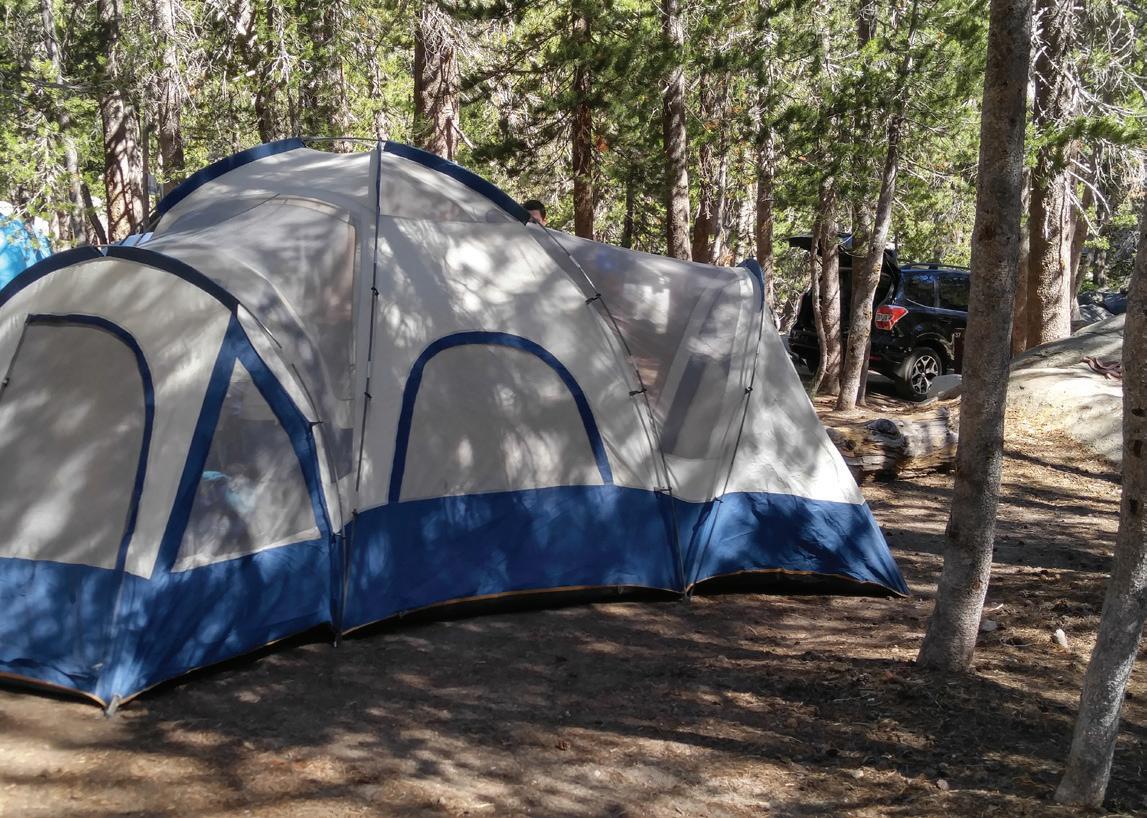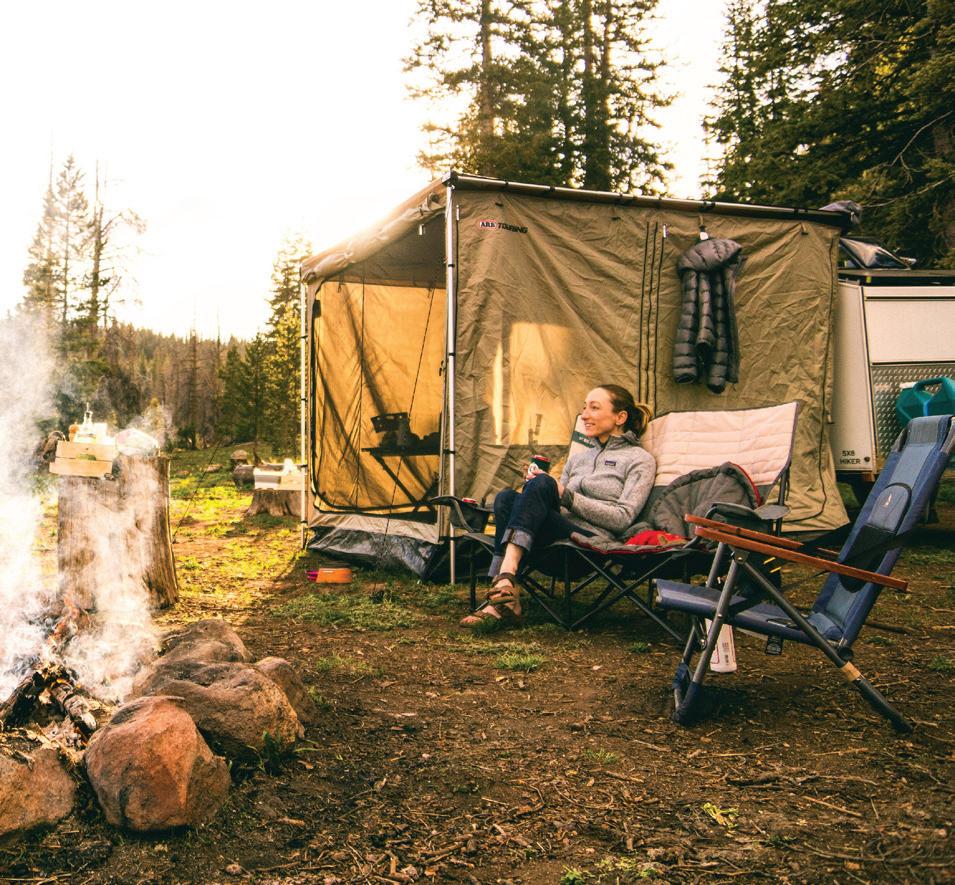
6 minute read
4.4 Encourage Private Sector to Provide Additional Accommodation
Planning Considerations
A development approval under the Townsville City Plan 2014 is required for proposals involving expansion of existing caravan parks or development of new RV and camping facilities. The Townsville City Plan 2014 does not currently differentiate between the scale or facilities proposed, with requirements generally modelled on large commercial tourist parks. It can be complex to navigate for caravan park owners wishing to diversify their business or for developers of selfcontained campgrounds.
The Queensland Next Generation Tourism Planning Guideline (2014) provides guidance about prioritising tourism uses within planning schemes and would provide direction for an amendment to the Townsville City Plan 2014 regarding extensions to existing caravan parks and development of new campgrounds.
An amendment would support local businesses providing a range of accommodation options for the RV and camping tourism sector. Changes to the Townsville City Plan 2014 are made in conjunction with a review of applicable fees and charges.
OPTION 4.4.1 Investigate amendments to the Townsville City Plan 2014 regarding extensions to existing caravan parks and development of new campgrounds in line with the different scales of camping uses identified in the Townsville camping options matrix
OPTION 4.4.2 Investigate amendments to the annual Townsville Infrastructure Charges Resolution 2019 regarding extensions to existing caravan parks and development of new campgrounds in line with the different scales of camping uses identified in the Townsville camping options matrix OPTION 4.4.3 Investigate amendments to planning and development Fees and Charges regarding extensions to existing caravan parks and development of new campgrounds in line with the different scales of camping uses identified in the Townsville camping options matrix
OPTION 4.4.4 Amendment to Local Laws to align with the Townsville camping options matrix and infrastructure requirements
OPTION 4.4.5 Maintain communications with private sector and accommodation providers to review policy amendments and options for suitability with industry
Other Approaches to Campground Regulation
FRASER COAST:
Fraser Coast Regional Council have taken proactive measures to grow the RV and camping tourist sector within their region. The Fraser Coast Planning Scheme 2014 includes additional administrative definitions to differentiate between campgrounds that cater only to self-contained vehicles.
Self-contained vehicle -
A vehicle that has onboard cooking and sleeping facilities and can: a. hold freshwater; and b. store greywater and/or blackwater.
Self-contained recreational vehicle ground -
Land designated and managed for the purpose of short-term lodging in self-contained recreational vehicle (RVs), motorhomes and caravans. The

use does not include tent camping, cabins or constructed guest facilities such as sports courts, swimming pools or kiosk 11 .
These definitions have allowed the planning scheme to lower the level of assessment and infrastructure requirements for these facilities. In numerous zones, the establishment of a Self-contained recreational vehicle ground or expansion of an existing Tourist Park is ‘Accepted development subject to requirements’, meaning a planning approval is not required if the proposal complies with a number of conditions. A detailed planning scheme code outlines the requirements for these developments, and the onus is on the developer to ensure compliance. This would make it easier for the private sector to establish lowimpact accommodation options.
MACKAY:
Mackay Regional Council are currently in the process of making a major amendment to the Mackay Region Planning Scheme 2017, allowing certain developments for Self-contained recreational vehicle grounds to proceed without requiring a planning approval.

The amendment proposes the same two new administrative definitions as Fraser Coast, Self-contained recreational vehicle ground and Self-contained vehicle. The change will allow for certain developments to be ‘Accepted development subject to requirements,’ for expansions to an existing Tourist Park, or establishment of new Nature-based tourism uses for a Selfcontained recreational vehicle ground. These requirements limit the scale to 10 sites or less and establish benchmarks such as site area, environmental constraints, length of stay, vehicle access and provisions for flooding and emergency evacuation. This amendment is proposed to be adopted in 2020.
Townsville Camping Options Matrix
The following matrix categorises Townsville’s mix of camping options into three different types: • Self-contained campground • Basic campground • Commercial campground
This matrix is recommended to be referred to when assessing proposals for additional RV and camping accommodation to support a mix of options. Self-contained vehicles only portable shower and toilet)

Typical Facilities
Self-contained campground
Basic campground
Commercial campground
No infrastructure required to be provided
Rubbish Bin, potable water tap plus
optional:
Toilets Showers (generally with additional cost) Unpowered sites (or powered with additional cost) Dump Point
Facilities above, plus:
Powered sites Showers Optional: Cooking facilities Laundry Pools/slides Common recreation facilities
Type of Vehicle
(including vehicles retrofitted eg. Ensuite sites
Length of Stay
Short-term eg. 3 nights
Example
Bush camp no facilities, Self-contained Recreational Vehicle grounds
All types
Short-term eg. max 72 hours
Queensland Parks and Wildlife campgrounds eg. Big Crystal Creek, Council campground at Bluewater Park Big 4 caravan parks, Rowes Bay caravan park
Cost
Free or low cost: generally less than $20 per vehicle per night Free or low cost only: less than $20 per vehicle per night for unpowered sites Cost generally greater than $20 per vehicle per night. Often additional cost for powered sites
Infrastructure
required All infrastructure
optional
Potable water supply; rubbish bins plus optional: On-site waste disposal or connection to sewage;
All types No limit
Power (optional)
Facilities above, plus:
Full connection to municipal services or on-site provision of power, telecommunications, etc
Around Australia, there are various examples of businesses and community organisations operating or assisting in the operation of camping grounds on public land. Management responsibilities vary but may involve site supervision, maintenance and the organisation may fundraise by collecting camping fees.

There is a possibility that existing Council campgrounds in the Northern Beaches could be externally managed. As all locations share facilities with local parks, it would be complex for Council to share maintenance responsibilities with a third party while still ensuring the parks meet public expectations. Enforcement of overstays and overcrowding need to be addressed and responsibilities documented.
Increasing demand may lead Council to consider making public land available to support the development of additional commercial campgrounds. Consideration must be given to how our commercial campground will contribute to Townsville’s economy and not threaten the viability of established operations.
There are many opportunities for local community groups to benefit from RV and camping tourists in
Townsville. Local community groups in proximity to the campgrounds have a new market for fundraising events. Barbeques, for example, are already a regular event in some of the northern communities and scope exists for more events, such as markets, throughout the busy months.
In other regions, sporting or community groups have established camping facilities on their premises operating when the site is not being used for club activities. A planning scheme amendment may make it easier for community groups to develop such facilities. The presence of RV and camping tourists is a positive opportunity for the community.
OPTION 4.4.7
Investigate and planning scheme amendment to allow camping on sporting and community facilities OPTION 4.4.6 Consider best use of Council-controlled land that could be made available to the private sector or community groups to manage RV and/or camping accommodation that complements mix of camping uses
Community Involvement with Drive Tourism

identified in the Townsville camping options matrix.








